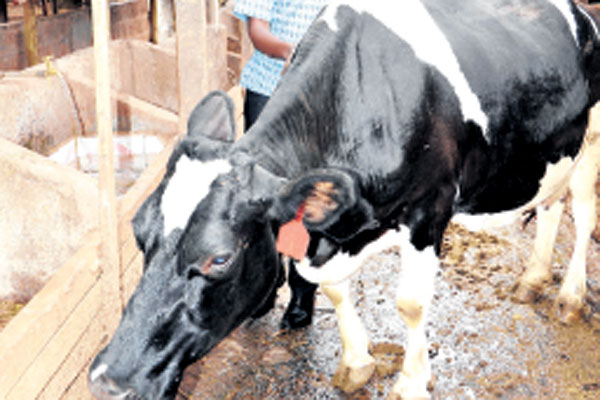Water is an important element for every living thing. As a matter of fact, water makes up 80 per cent of the blood volume and of importance to you, milk is 80 per cent water.
For every litre of milk a cow produces, it requires at least three litres of water. Water is also important for temperature regulation and body functions that include digestion.
The amount of water intake is determined by the animal size, age, stage of growth, activity, level of production, amount of dry matter feed intake and environmental factors like temperature and humidity.
Animals are very sensitive to the quality of water they are given, so ensure it is not contaminated. Besides, look out, cows have the tendency of urinating or dunging in water, and this can pass unnoticed.
For your case, this decreased water intake may have been caused by a number of factors. They include high moisture content of the feed you provide, the presence of salinity and impurities in the water, thus, affecting taste and odour, lack of fresh clean water within the animal shed or crowding around watering points.
CLEAN WATER
To help minimise these challenges, change water in the drinking troughs when necessary, ensure the water does not have bad smell or taste and clean the drinking trough regularly. Any form of water contamination leads to low intake and this exposes your cow to disease-causing organisms.
Again, cows relatively drink much water when they have enough food to eat. Feed her adequately and include higher dry matter content in the feeds to make your animal drink more water. Inclusion of concentrates like dairy meal, for example, during milking also make animals consume more water immediately after the exercise.
If the amount of water your animal is taking is inadequate, you will notice changes which may include firm constipated stool, low urine output, drop in milk production and urine drinking, among other health problems.
So, as you seek to solve the challenge, always remember the following questions: how clean is your watering container? Is the water you provide fresh? Is the water free from salinity? Is it easily accessible to your animal at all times? What is the moisture content of the feed you provide?
All said, remember to provide your cows with clean water, which should not be hot or too cold. If any serious health complications arise, however, please consult a qualified veterinarian near you.









